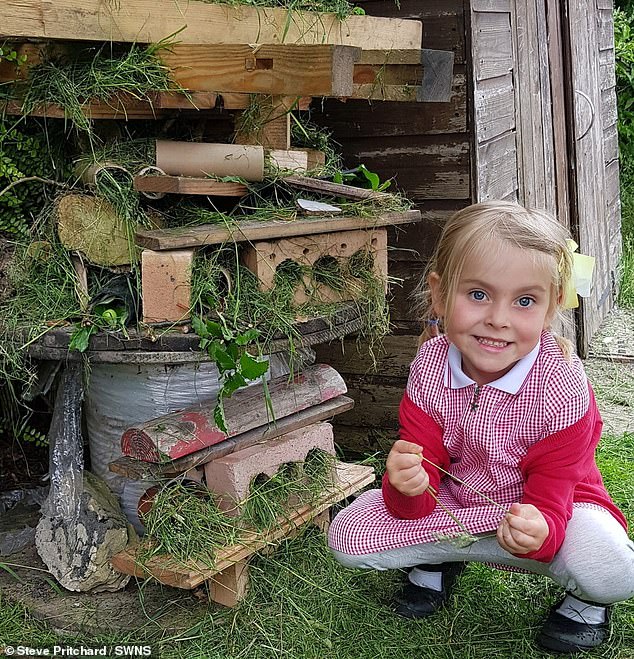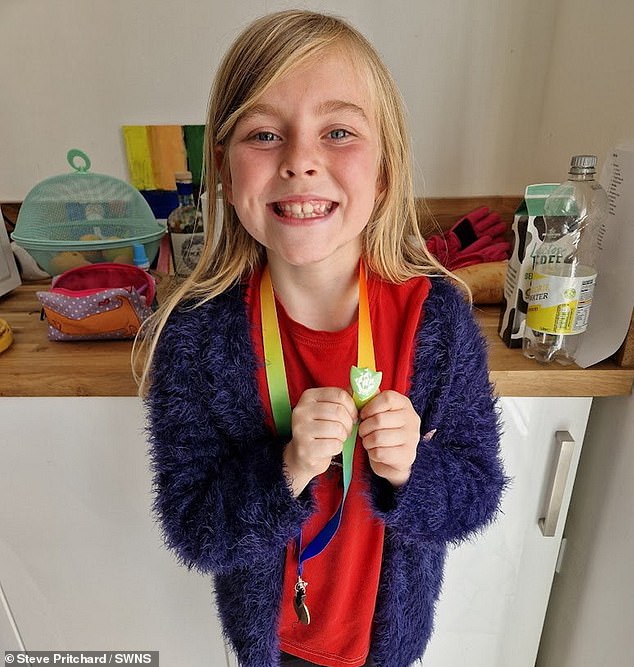A father has told of his heartbreaking anguish after his “healthy” 11-year-old daughter died suddenly in her sleep.
Steve Pritchard, 43, said his daughter, Matilda, had gone to bed “normally” on the night of April 2 this year, showing no signs of discomfort.
But the next morning, Pritchard and his wife, Anna, 43, discovered Matilda had gone into cardiac arrest in her sleep.
Despite the best efforts of paramedics who arrived at the scene within two minutes, she was pronounced dead on arrival at the hospital.
Company director Pritchard, of Pudsey, Leeds, said it was later revealed Matilda had an undiagnosed heart condition called arrhythmogenic right ventricular cardiomyopathy.
This is a genetic defect that causes the heart muscles to be weaker than normal and therefore have to work harder to pump blood, which can lead to life-threatening cardiac arrest.
The gene that causes arrhythmogenic right ventricular cardiomyopathy occurs in about one in 1,000 people, although not everyone who carries it will develop the condition.
Both Mr and Mrs Pritchard and Matilda’s older sister Olivia have undergone various tests to determine if they too have the disease.
Matilda, 11, went to bed normally one night in April this year, but never woke up.

Her parents, who discovered Matilda unconscious the next morning, desperately called 999 for help, but despite the best efforts of the paramedics who attended the scene, they were unable to revive her.

Her father Steve, mother Anna and older sister Olivia later learned that Matilda had an undiagnosed genetic heart condition that caused the organ to fail while she slept.
“We immediately worried about Olivia,” Pritchard said.
“He is 14 years old and the symptoms usually start around 13. But everything has come back completely clear: we are all fine.”
People with arrhythmogenic right ventricular cardiomyopathy may experience symptoms such as heart palpitations, fainting, shortness of breath, swelling, as well as chest pain and discomfort.
However, sometimes it may not show any symptoms or may only appear as the person ages, although it can still kill even if no signs are present.
The condition is usually diagnosed by scans to examine the size of the heart, as well as tests to measure whether it beats at a normal rate.
There is no cure for arrhythmogenic right ventricular cardiomyopathy, also called arrhythmogenic cardiomyopathy, but treatments are available.
Typically, these are medications that help support the heart, but other options include installing a pacemaker, implants that monitor the heart and sound an alarm if a problem is detected, or heart surgery.
Such treatments aim to reduce symptoms, help people with this condition live a normal life, and reduce the chances of potentially dangerous complications.

Matilda’s said her daughter was a passionate environmentalist who loved animals and helped pick up litter in her local area.

As part of honoring her memory, Matilda’s family have organized a fundraiser for the Keep Britain Tidy charity.
It is estimated that around 64,000 people in the UK have a defective gene that can cause this condition.
Matilda’s family is now taking steps to honor Matilda’s “last wish”: “to rid the world of trash.”
Pritchard said: “It’s been catastrophically terrible, but I hope we can start the process of our little girl’s dream – a world without litter.”
Matilda, who was an “animal lover” and “passionate about the environment”, loved picking up litter in her local park.
In his memory, Mr Pritchard has created a online fundraising for the Keep Britain Tidy charity to fund an educational program run over five years, one for each of Matilda’s secondary school years ahead.

